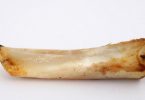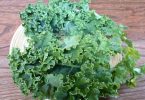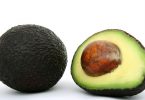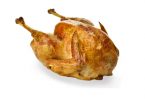Today’s question: can dogs eat cashews? Scroll down for detailed answers.
Cashews are a form of nut, generally accepted as a broad range of fruit composed of a hard shell and a seed. Depending on the source, nuts vary in nutritional value, but generally can be considered a good source of energy and protein. Many contain sources of folate, fiber, vitamins E and B2, and the essential minerals such as magnesium, copper, phosphorus, selenium, and potassium. In their raw form, nuts can be considered as a healthy food, in moderation. When considering cashew nuts, specifically, they are high in phosphorus and can be damaging or discomforting when digested by dogs. But this is not always the case.
The reality is that dogs have no need to consume nuts at all. Dogs are primarily carnivorous creatures. Due to their instinct of eating meat, and preferring the taste of meat, a dog is not wishing for cashews on a Sunday afternoon as their masters may be. The cashew is generally high in fat, which dogs have trouble digesting. Digestion problems lead to stomach trouble and general discomfort. Stomach trouble is not worth the offering of cashews to dogs, given the potential mess that may occur and the potential pain your dog may suffer in the process. Offering an alternative to the cashew, or nothing at all from the nut family, may be your best bet in preventing side effects cashews offer dogs.
Your dog may have eaten your cashews before or has shown a great interest in your snack of nuts. Your friends may offer their dogs cashews and you would like to use the cashew as a training treat. While the problems of digestion and high fat content may seem minimal, you may still be wondering if dogs can eat cashews.
Can Dogs Eat Cashews?
Cashews are a nut that is not generally recommended to be given to dogs However, nuts do provide a lot of benefits. Cashews are no different in this respect. It is not harmful to feed a small amount of cashews to your dog, on occasion. They are a good source of protein and energy, making them ideal for working or generally active dogs. However, your dog may have an allergy towards nuts, just like humans, in which case you should consult your vet before feeding your dog any form of nut.
In general, you can feed your dog a few cashews from time to time, but it is definitely a bad idea to form a habit of this. A healthy dog will be fine if consuming a few irregular cashews, but if your dog suffers from pancreatitis, cashews are highly inappropriate and often rather toxic. Most would argue that nuts are a bit of a stretch from a canine’s natural diet, which is correct. In this sense, it is better to offer them a chew stick that contains similar nutritional benefits such as built in antioxidants.
Peanuts offer protein, which is essential for the growth and strength of your dog. However, protein may be ingested through a variety of sources outside of the cashew and outside of the nut family in general. Protein is given to your dog through kibble and through occasional bits of meat. Adding cashews to the diet can potentially produce an allergic reaction, raise their fat storage, and cause digestion to slow. The cashew may be given from time to time; however, if the cashew is given frequently, the side effects are much more apt to appear in your dog.
Cashews should only be used as a snack or just sprinkled over their food on special occasions, not every day. Everyday consumption is too much and will only lead to weight gain and digestion problems. If you find your dog has sniffed out your own cashew stash and gone through the whole packet, do not worry too much, unless they have a history of allergies towards nuts. But to a healthy dog, a once off cashew binge will not produce harmful effects. Be sure to keep an eye on your dog and be mindful of behavior changes or digestion problems. You may need to keep a closer eye on your pup for a couple of days until the cashews have been released from his/her system. In the event you are unsure of what to look for, or how to be prepared in the event of an intestinal blockage, refer to your veterinarian and s/he will determine the breed and size of dog and how you should proceed.
Benefits of Cashews
Cashews do offer some nutritional benefits of their own, and they are generally cheaper than chew sticks. They are a great source of dietary fiber and have a lower fat content than other nuts such as almonds, pecans or walnuts. They are also high in protein, magnesium, flavonols and antioxidants.
The added fiber will help with digestion, strength, awareness, and appetite suppression. In the event your dog needs to slim down, offering cashews is not necessarily a good idea due to the fat content. However, a small amount used to offer fiber will allow your dog to feel satisfied in between meals and help prevent excess begging or food snatching. The fiber will also help aid the immune system, ridding the body of any toxins wishing to make a home in the body of your pup.
When given on occasion, cashews certainly can benefit your dog’s diet, but the nut should be restricted to an as needed basis only. So, as with humans, nuts can be a part of a balanced and nutritious diet. They are a brilliant source of energy, fats and protein, making them ideal for an active work dog, or one who just enjoys getting out and burning their energy. But nuts should be eaten in moderation.
If your dog is not active and consuming a lot of nuts, it will gain a lot of weight and have great trouble digesting them, leading to an upset stomach and general discomfort. They generally have a high fat content, which is why they are ideal for active dogs, but old or lazy dogs will take no benefit from snacking on nuts, notably cashews, due to their higher fat content. In the event you want your dog to benefit from the vitamins and nutrients offered by the cashew, tend to move towards a different source of vitamins or offer a supplement. Many other human foods are safe for dogs and do produce the amount of risk for allergic reaction or stomach upset. Offering a supplement your vet recommends may be safer in the long run, even if the expense of the supplement is higher than that of cashew. Cost should not be considered in this instance given the risks involved with the cashew compared to other nutritious foods that may be offered.
Disadvantage of Cashews
You may be under the impression that your dog is big, tough dog with plenty of power to digest any food without issue. However, because cashews are unnatural to the dog’s diet, they can also have adverse dietary affects. For one, the protein source is not from meat. Adding protein to the diet of your dog is important, but just as important I the source of the protein. Meat is where the protein should be derived from to benefit the dog in the most natural sense. Offering cashews rather than a meat source is not in the best interest of your dog.
Adding food from the nut family rather the meat family can reduce the quality of your dog’s diet because of the high fat and sodium content of cashews compared to that of a meat source. Too much fat will lead to weight gain and poor digestion, making life incredibly uncomfortable for your dog. The higher fat within the diet can also lead to further discomfort and health issues by way of artery blockages, gall stones, bladder stones and pancreatitis due to the poor digestion as a result of the high fat content. Just as humans have difficulty adding fat to their diet and carrying extra weight, so does your favorite furry friend. Not offering excess fat to your dog is not only healthy, but the kind and humane thing to do.
As a high allergen food for humans, dogs too can suffer from an allergic reaction to all nuts. If they are allergic to nuts, they will vomit, suffer diarrhea and dehydration. In some cases the toxicity may be so strong that the dog actually dies; severe cases will result in anaphylactic shock or salt poisoning (sodium toxicosis). So consult your vet before considering adding cashews to your dog’s diet. You may find the risk of offering nuts to your dog is too high given the rate of allergic reactions to nuts found in dogs. You do not want to feed cashews to your dog and find out shortly thereafter that your dog is allergic. Some things are best not known and are respected as a boundary.
Hives are also a risk factor for dogs with a nut allergy. The dog may not show an allergic reaction to cashews by choking and going into shock, but breaking out in hives can be equally awful and painful. At any rate, forming a routine of feeding your dog cashews will inevitably lead to bad feeding habits and weight gain. The routine of eating nuts may also put your dog off of eating his/her traditional food and he/she may become a picky eater.
It is important to analyze the nutrient and toxin content of any nut before feeding it to your dog. Highly fatty nuts can be assumed to upset their stomach, and certain nuts contain toxins that can produce harmful effects.
A relatively easier exchange for the cashew is the hazelnut. Hazelnuts are lower than most nuts in their fat content. But because of their size, it is better crush them up over the dog’s food, especially with smaller dogs, are they do pose a choking hazard on smaller throats. Otherwise, hazelnuts contain no harmful toxins and are suitable for dog consumption.
Raw, Cooked or Roasted Cashews?
Although cashews are suitable for dogs, in that they are not necessarily toxic, despite their slightly higher fat content, it does mean that they should be limited, more so than other nuts. One thing that is highly important when considering cashews, however, is that they are cooked or roasted. Raw cashews will contain a toxin that is killed during the cooking process, which makes them safe.
Conclusion
Realistically though, there is no need to feed your dog nuts of any kind. They are not natural to a canine diet and all of the nutritional benefits found in nuts can also be found in food sources that are natural to a dog’s diet, such as meats and vegetables, which contain less saturated fats and more fats that are natural for dog consumption.. Any high quality dog food will contain the right levels of protein, minerals and fats and will have been tailored to the correct levels to suit your dog’s age, breed and size.
When considering healthy foods, it is safe to assume that what is good for a human is not always good for our dogs. Dark chocolate, for example, is quite good for humans, but is toxic to dogs. Nuts, while are added to the diet of humans as a healthy fat and are not always toxic, are not necessarily healthy for dogs. The healthy food recommended for humans is not always in line with the healthy food recommended for dogs. Unfortunately, this rule applies to the cashew. Peanuts are often thought of as fun treat for dogs and easy way to get medicine into your pup, but just because peanuts are associated with dog treats, does not mean the cashew is also a treat. Not all nuts from the nut family are safe and healthy for dogs, even in moderation.
A dog’s diet does not need the variety that a human’s does, and offering too much variety can lead to problems. You may develop bad eating habits in your dog, who believes nuts are not a staple in his diet. You may also be slowly poisoning the dog as well, so think long and hard before you decide to start feeding your dog nuts as a snack.
Again, if you insist on introducing cashews in to your dog’s diet, then it is advised that you consult your vet as well before you start feeding them, because your dog may have allergic reaction to nuts, despite not showing signs of an allergy in as violent a manner as humans would.
References:
http://dogs.lovetoknow.com/dog-nutrition/should-dogs-eat-cashews#chts9EWuxKCPc1rz.97
http://www.petmd.com/dog/nutrition/evr_dg_dog-owners-guide-to-nuts-and-seeds
http://www.akc.org/content/health/articles/human-foods-dogs-can-and-cant-eat/








Leave a Comment